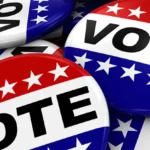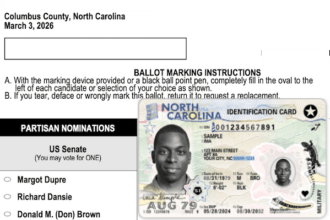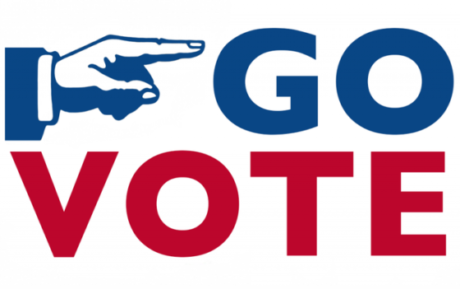While the presidential and gubernatorial races are getting most of the press coverage, many North Carolina voters may be surprised when they enter the poll and discover a constitutional amendment on the ballot.
The proposed amendment reads Constitutional amendment to provide that only a citizen of the United States who is 18 years of age and otherwise possessing the qualifications for voting shall be entitled to vote at any election in this State.
Voters can mark their ballots for or against the amendment.
The amendment codifies what is assumed by many to already be law in North Carolina: that only U.S. citizens can vote in elections. The state constitution, in Article Six, says that “Every person born in the United States and every person who has been naturalized, 18 years of age, and possessing the qualifications set out in this Article, shall be entitled to vote at any election by the people of the State.” Article Six states voters must be North Carolina residents, and emphasizes that convicted felons also cannot vote until they completed all court ordered sentences and had their rights restored.
Supporters of the amendment in the General Assembly say the amendment would clarify the rules beyond any doubt. They argue that local governments could pass measures allowing non citizens, even undocumented immigrants, to vote in local elections on everything from elected offices to bond referendums.
While no local governments in North Carolina have welcomed non-citizens onto the voter rolls, Oakland and San Francisco, Calif., Washington D.C., and Montpelier, Vt. Do allow non-citizens residing in those cities to vote. Other states – South Carolina, Wisconsin, Idaho, Iowa, Missouri, Oklahoma, and Kentucky — are considering similar measures on the November ballot. North Dakota, Colorado, Ohio, Alabama, Florida, Louisiana and Arizona approved similar measures in recent years, in part due to the large influx of illegal immigrants and suggestions by some elected officials that non-citizens should be allowed to vote.
Proponents note that the increasing tendency for fine details being decided by the courts is a motivating factor for the amendment. By eliminating any room for doubt, litigants who might lobby for non-citizen voting would have a tougher road to follow. House Speaker Tim Moore called the measure a method of “shutting the door” on future litigation about non-citizen voting.
“The concern is looking down the road, and we’re seeing what’s happened in some other states where some activist judges have come in and tried to find loopholes to allow non-citizens to vote,” Moore told WUNC.
Opponents say the amendment is meant to spread fear and racism. Democrats in the General Assembly have accused the Republican majority of using the amendment to “drum up more conservative voters and create fear and confusion,” Wake County Rep. Sarah Crawford told the media.
Democracy NC took its criticism one step further. In a now-deleted post on its website, the left-leaning group called the measure “extremist” and bigoted”.
“In North Carolina, efforts to further this bigoted conspiracy theory surfaced at the state legislature with extremist lawmakers passing a ballot initiative.”
Republicans were originally lukewarm to the idea, which passed with only 16 Democrats voting against it.
“This proposal makes it absolutely clear and removes all reasonable doubt that only citizens can vote in our state’s elections,” Rep. Destin Hall (R-Watauga) said in August.
The State Board of Elections says on its website that several layers of rules prevent non-citizens from voting in North Carolina. The most recent change – Voter ID – is meant to strengthen the electoral process by preventing fraud as well as votes by non-citizens.
Voters must attest to their citizenship status on voter registration forms, under the penalty of perjury. Information is checked against DMV and Social Security records. At DMV License Offices, applicants are asked if they are citizens before being automatically registered to vote. Any registered voter can also challenge another voter’s right to cast a ballot, the SBOE says. A new state law also cross-references people excused from jury duty for non-citizenship against voter registration rolls. The SBOE said nine voters have been removed from the rolls through that process.
The SBOE has a section assigned to investigate claims of illegal voting, ballot tampering and other crimes. When evidence is found, the SBOE refers cases to prosecutors for criminal action. Between 2015 and 2022, the SBOE said eight suspected non-citizens were referred to the courts for prosecution overt illegal voting.
The amendment is in the “referenda” section of all statewide ballots. Voting in favor of the amendment would require that voters be 18 years of age and meet all qualifications for citizenship of the United States and as a voter in North Carolina. Voting against the amendment would leave the current language, including the phrase “every person born in the United States and every other person who has been naturalized, 18 years of age” in place.






